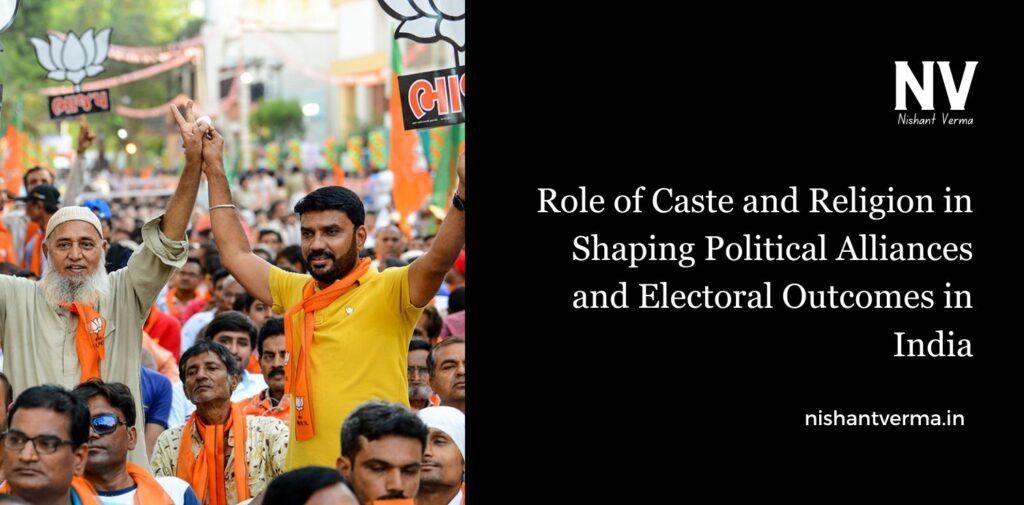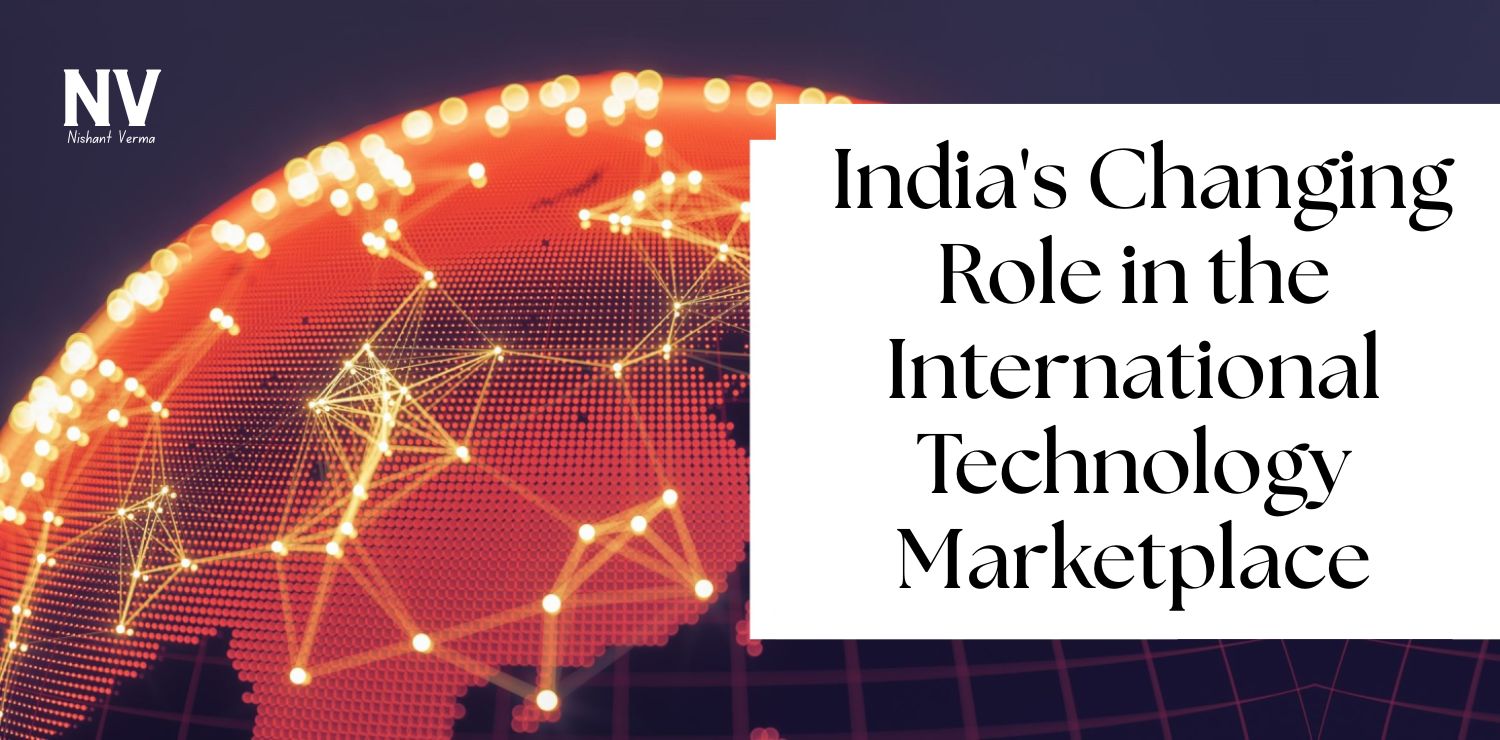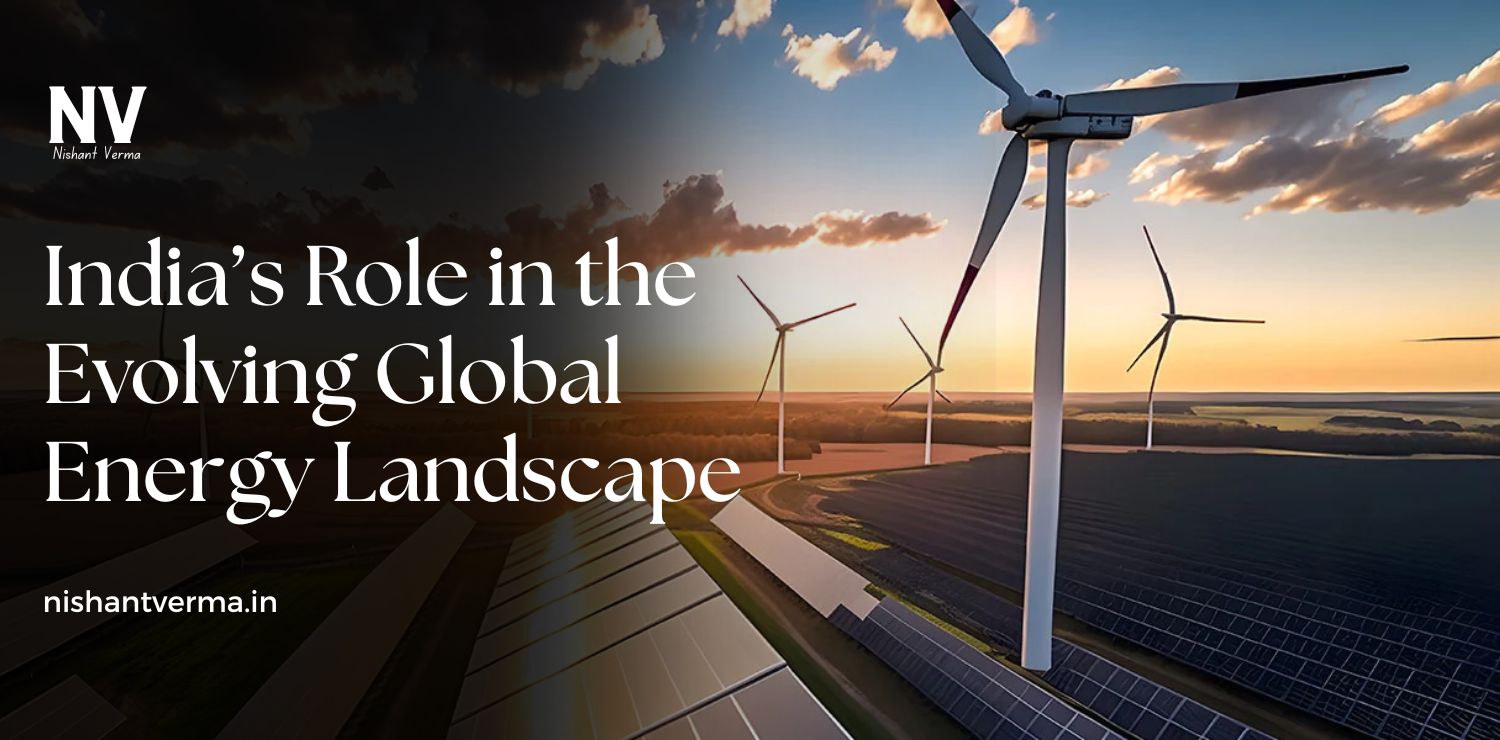India is a large and diverse country with many different cultures, languages, religions, and traditions. When it comes to politics, two factors—caste and religion—play a very important role in shaping how elections happen and how political parties form alliances. These factors can deeply influence which political party wins and how people vote.
In this article, we will discuss how caste and religion affect politics in India, and how they play a role in elections. We will also look at the effects these factors have on the way political leaders form alliances to win elections. Let’s explore this topic in a simple way.
What Is Caste and Religion?
Before understanding their role in politics, we need to know what caste and religion mean:
- Caste is a system that divides people into different groups based on their social and economic status. It is an old tradition in India, where people are born into certain castes, and each caste has a different role in society. For example, there are higher castes (like Brahmins and Kshatriyas), and lower castes (like Dalits and backward castes).
- Religion refers to the different faiths people follow. The major religions in India are Hinduism, Islam, Christianity, Sikhism, Buddhism, and others. In India, religion is a key part of a person’s identity.
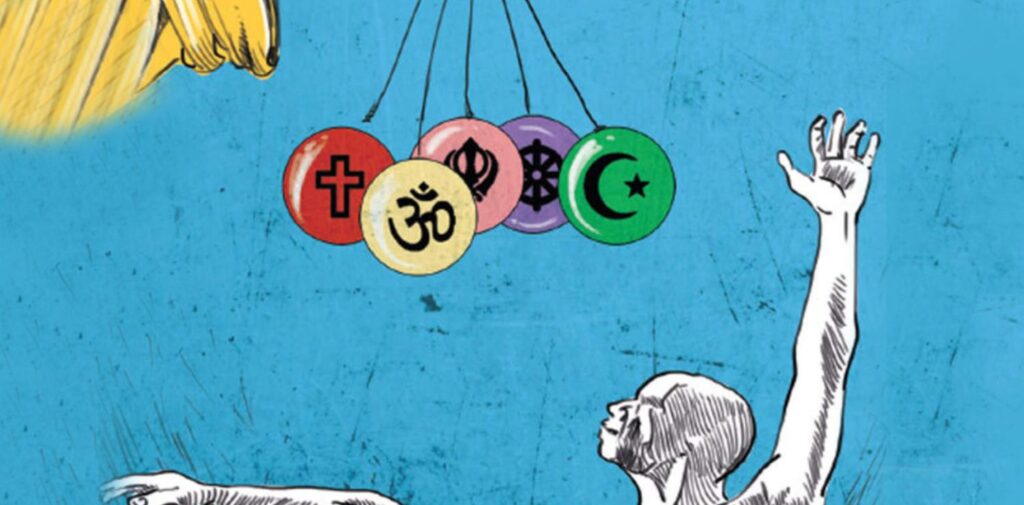
Now, let’s see how caste and religion affect Indian politics.
How Caste Affects Politics in India
Caste plays a big role in Indian politics, especially in elections. Here are some ways caste impacts politics:
Vote Banks Based on Caste
Political parties in India often try to gather votes from people belonging to certain castes. These groups of voters are called “vote banks.” For example, in some areas, people from a particular caste may vote together for the same political party because they feel that party will look after their interests.
Political leaders make promises or give special benefits to people of specific castes to get their support. This is why caste becomes an important factor when parties want to win elections.
Political Parties and Caste
Many political parties in India have leaders or members from specific castes. These leaders often focus on issues that are important to their own caste. For example, leaders from the Dalit community may talk about issues affecting Dalits, such as their rights and social equality. Similarly, parties that focus on the upper castes may address issues like education or jobs that they believe are important to their voters.
By focusing on specific castes, these political parties hope to gather a large number of votes from these groups.
Forming Alliances Based on Caste
To win elections, political parties often need to form alliances with other parties. These alliances are often based on caste. For example, one party might represent the upper castes, while another party might represent the lower castes. By joining together, they can combine their votes to have a better chance of winning.
In this way, caste helps shape political alliances and ensures that different groups of people are represented in the government.
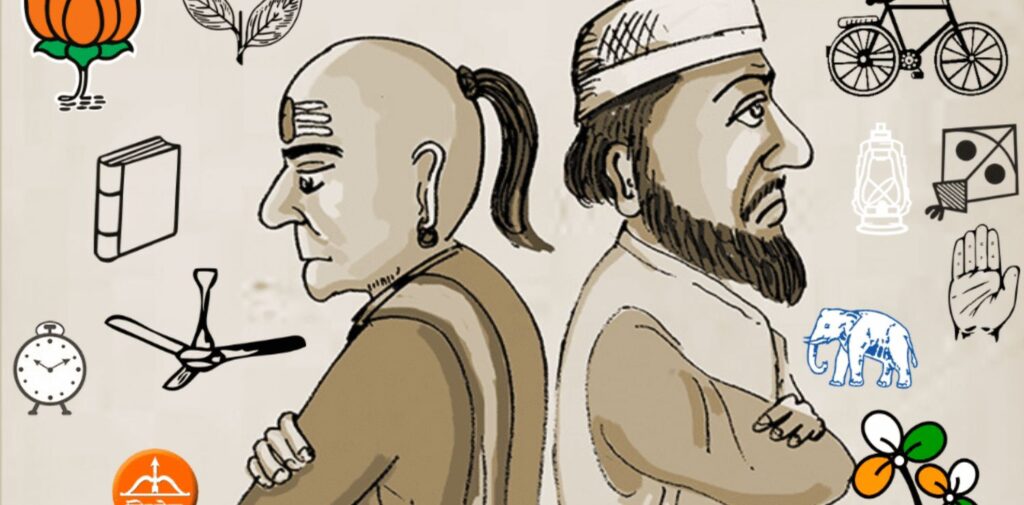
How Religion Affects Politics in India
Religion is another powerful force in Indian politics. Here’s how religion plays a role in shaping political outcomes:
Religious Vote Banks
Similar to caste-based vote banks, religion also creates its own vote banks. For example, political parties may try to attract Muslim voters or Hindu voters by focusing on issues that are important to those communities. Some parties may promise more rights or benefits to people from a particular religion.
Political leaders often appeal to religious feelings, telling people that their religion needs protection or support. This can lead to a strong religious identity in politics, where voters choose their political party based on their religious community.
Communal Politics
Communal politics happens when political leaders use religion to divide people and gain votes. Some leaders try to create fear or hatred between different religious communities to gain support. For example, they may talk about how one religion is being mistreated or discriminated against, creating an “us versus them” mentality.
This kind of politics can be very dangerous because it can lead to violence and division between different religious groups. Unfortunately, this type of politics has been seen in India’s history during several elections.
Religious Parties and Political Influence
In India, there are also political parties that focus mainly on religion. For example, some parties focus only on representing the interests of Hindus, while others focus on representing Muslims or Sikhs. These religious parties try to gain votes by emphasizing religious issues.
While most political parties in India try to represent all religions, these religious parties play a major role in elections, especially in areas where one religion is in the majority.
How Caste and Religion Shape Electoral Outcomes
Now that we know how caste and religion affect political alliances, let’s talk about how they shape election results:
Choosing Candidates from Specific Castes or Religions
Political parties often choose candidates based on their caste or religion because they believe that voters from that group will be more likely to support them. For example, if a party wants to win votes from the backward castes, they may select a candidate from that caste. Similarly, a party might select a Muslim candidate to appeal to Muslim voters.
Appealing to Caste and Religious Voters
Political campaigns often focus on caste and religion to attract votes. During elections, parties make promises that they believe will appeal to specific caste or religious groups. For example, they may promise scholarships, jobs, or special treatment for people of a particular caste or religion.
These promises are meant to secure votes from specific communities and ensure that the party wins the election.
Dividing Voters Along Caste and Religious Lines
In some cases, caste and religion cause divisions among voters. For example, if a particular caste or religion is angry with the government or feels neglected, they might all vote for the opposition party to express their displeasure. This can lead to a shift in the balance of power.
Changing the Outcome of Elections
The power of caste and religion can sometimes change the outcome of an election. If a particular caste or religious group has a large number of voters, their votes can make a big difference. Political parties that are able to win the support of these groups have a much better chance of winning the election.
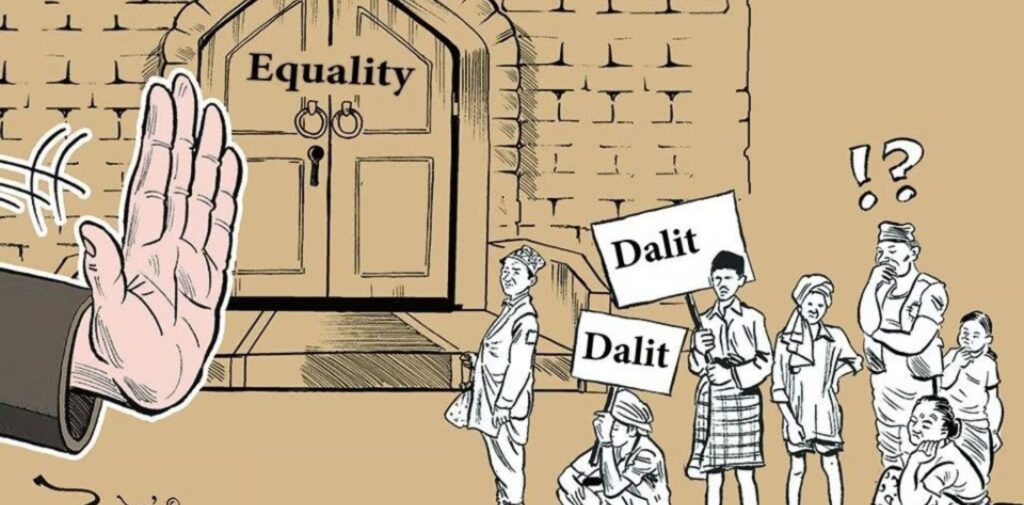
The Challenges of Caste and Religion in Politics
While caste and religion have a big impact on Indian politics, there are also challenges that come with this. Caste and religion-based politics can:
- Create Division: When politics are divided along caste or religious lines, it can create a feeling of mistrust and hostility between communities. This can lead to social unrest and even violence.
- Distract from Important Issues: Sometimes, political parties focus too much on caste and religion, instead of focusing on important issues like education, healthcare, or jobs for everyone. This can prevent real progress from being made.
- Support Inequality: Caste and religion-based politics may encourage inequality. Certain groups may get more attention and resources than others, which can leave behind marginalized communities.
Conclusion: Moving Toward Inclusive Politics
Caste and religion play a huge role in shaping political alliances and electoral outcomes in India. While these factors are deeply rooted in the country’s history and society, it is important for India to move towards more inclusive politics.
In the future, political leaders and parties need to focus on bringing people together, rather than dividing them based on caste or religion. By addressing the needs of all people, regardless of their background, India can build a stronger and more united democracy.
Caste and religion will always be a part of Indian politics, but the hope is that one day, politics will be more about what is best for everyone, and less about what divides us.

